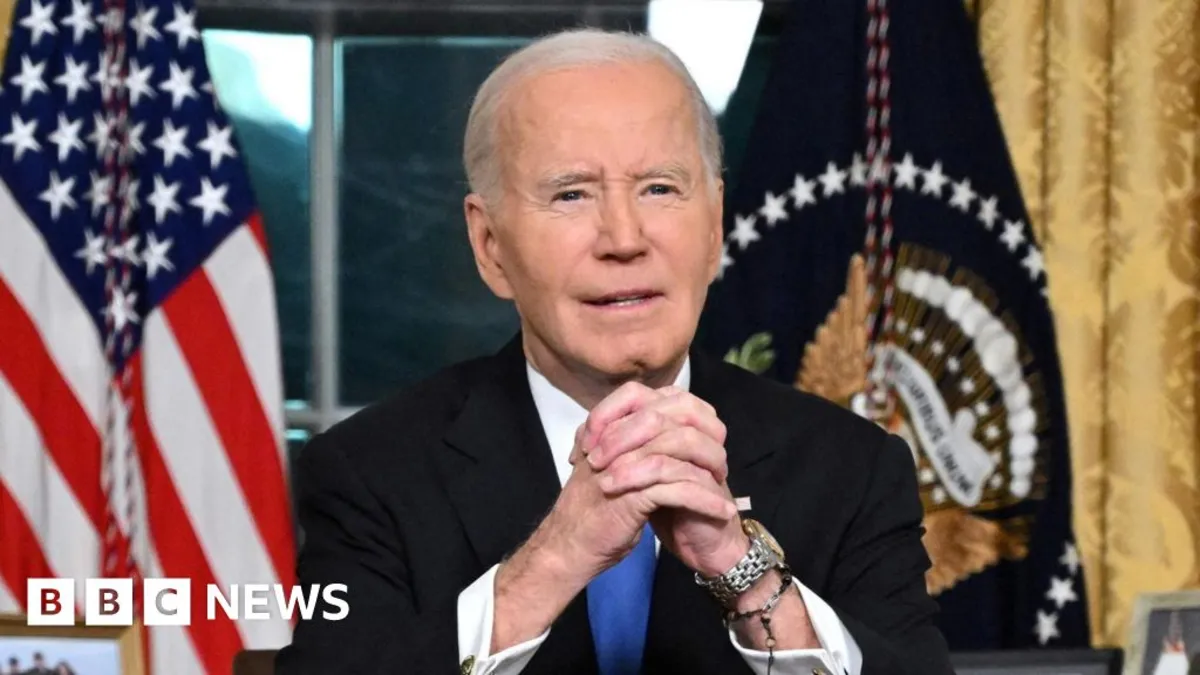
On Sunday, Former President Joe Biden's office revealed that he has been diagnosed with an aggressive form of prostate cancer, which has unfortunately metastasized to his bones. However, the office noted that the cancer appears to be hormone-sensitive, which allows for effective management options. Prostate cancer is the most prevalent cancer among men in the United States, second only to skin cancer, and it can often be treated successfully, according to the American Cancer Society.
The overall five-year survival rate for prostate cancer stands at an impressive 97%. However, this statistic drops significantly to 37% for cases where the cancer has spread to other parts of the body. Dr. Ben Davies, a professor of urology at the University of Pittsburgh School of Medicine, informed NPR's Morning Edition that Biden is facing a severe version of the disease, likely one of the worst types of prostate cancer.
The grading system commonly used for prostate cancer is known as the Gleason score, which examines tissue samples under a microscope to evaluate the aggressiveness of cancer cells. Gleason scores range from 6 to 10, with scores of 8 or above categorized as high-risk cancers. Biden's office has confirmed that he has a Gleason score of 9.
While the prognosis may seem grim, Dr. Davies believes there are effective treatment options available for the former president. These options include hormonal treatments, which may involve injections to lower testosterone levels, thereby slowing the cancer's growth and potentially allowing it to recede from the bones. Additionally, chemotherapy may be considered, particularly for advanced stages of prostate cancer. Radiation therapy is another viable option, which has shown to extend the lives of patients newly diagnosed with metastatic prostate cancer. Davies noted, “It’s not all doom and gloom; he can easily live 10 years with this disease.”
Biden's office has indicated that he is currently reviewing his treatment options with his medical team. Dr. Davies also mentioned that Biden's age, at 82, should not limit his treatment possibilities, emphasizing that the focus should be on his overall physiology rather than age alone.
Throughout his presidency and beyond, Biden's physical and mental fitness has been under intense scrutiny. Concerns over his age and well-being have led to speculation about his potential 2024 reelection bid. In his first public comments following the announcement of his diagnosis, Biden expressed gratitude for the support he has received. He tweeted, “Like so many of you, Jill and I have learned that we are strongest in the broken places,” accompanied by a selfie of him and his wife with their cat.
The American Cancer Society estimates that there will be approximately 313,780 new cases of prostate cancer diagnosed in the U.S. by 2025, with around 35,770 deaths attributed to the disease. The organization highlighted Biden’s diagnosis as a poignant reminder of the profound impact of prostate cancer in the U.S., where approximately one in eight men will face a diagnosis in their lifetime. Though prostate cancer is highly survivable when detected early, it remains the second leading cause of cancer death among men.
Several risk factors contribute to the likelihood of developing prostate cancer, including age, race, and family history. The disease occurs more frequently in Black men and Caribbean men of African ancestry and is typically diagnosed in men over the age of 50. The American Cancer Society reports that about 60% of prostate cancers are identified in men aged 65 and older.
Screening for prostate cancer typically involves a blood test and a digital rectal examination, with varying guidelines concerning when men should consult their doctors about screening. The ACS recommends screening at age 50 for average-risk men, age 45 for high-risk individuals, and age 40 for those with multiple first-degree relatives who had prostate cancer at a young age. The U.S. Preventive Services Task Force advises men aged 55 to 69 to undergo screening, while most men older than this should not be screened routinely.
Recent advancements in cancer research have significantly improved methods for diagnosing and treating prostate cancer over the past decade. Dr. Davies emphasized that we have made substantial progress in extending the lives of patients with metastatic prostate cancer. Biden has long been a prominent advocate in the fight against cancer, which became a personal mission for him after the loss of his son Beau to brain cancer in 2015. As vice president, he spearheaded the Cancer Moonshot initiative, aimed at accelerating research and reducing the cancer death rate by at least 50% over 25 years. Biden relaunched this initiative as president in 2022, aiming to achieve a decade's worth of progress in cancer prevention, diagnosis, and treatment within five years.
In contrast, the Trump administration faced criticism for cutting federal funding for scientific research, which many researchers argue hindered progress in cancer research and treatment. A recent report from the Senate Health, Education, Labor, and Pensions (HELP) Committee revealed a 31% reduction in funding for cancer research in the first quarter of this year compared to the same period in 2024. Dr. Davies stated that continued and robust funding for scientific institutions is crucial for making headway in prostate cancer care.